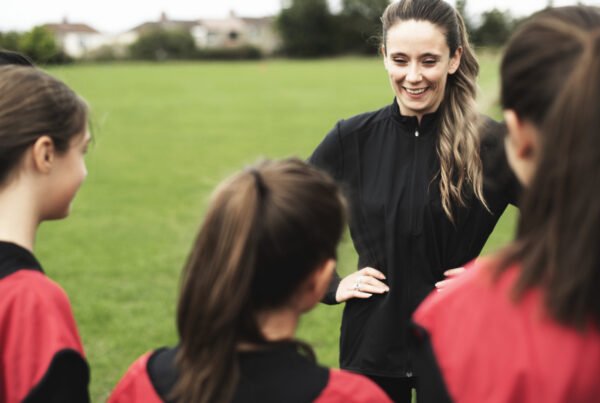Abstract
Traditionally, the role of the coach is perceived to be that of a leader and authority whilst the athlete is that of a follower. Due to gender stereotypes, women have often been seen to be less effective in leadership roles including sport coaching. This study aims to investigate how the gendered interactions of coaches and athletes influence perceptions of a coach and the quality of the coach-athlete relationship.
Methodology
The study involves 41 participants (16 males, 25 females) recruited from a range of team and individual sports. Participants had been involved with their sport for at least an average of 10.5 years and covered a range of performance levels from recreational to national. They watched four videos depicting a coach and athlete having a conversation about the athlete’s de-selection from the squad. Each video featured different gender combinations of the coach and athlete (male/male, male/female, female/male, female/female). Participants rated the coach on perceived relationship quality (including the three subscales of closeness, commitment, and complementarity) and perceived empathy.
Key Findings
Female coaches were rated consistently higher than male coaches across the three dimensions of relationship quality (closeness, commitment and complementarity). Female coaches were also perceived as displaying a greater level of affective empathy than male coaches. Both male and female coaches were perceived as displaying a greater level of affective empathy when paired with a female athlete.
Interpretation
The findings of this study highlights how gender can impact coach-athlete relationships. Female coaches are perceived more favourably than male coaches with regards to relationship quality and displaying empathy. It is important to acknowledge the specific setting and context of the study. Deselection is a coaching scenario that specifically requires empathetic communication, a trait stereotypically associated with women. Male coaches may be perceived as more effective in traditional coaching scenarios that emphasise knowledge, practical ability and directive behaviours. The study was intentionally sport-neutral, but it is possible that different sports would produce different results. For example, those traditionally associated with masculinity like combat or contact sports might more favourably receive assertive and directive coaches. The important take-away is that coaches should be aware how their actions may be interpreted differently based on their gender and that of the athletes they are working with.




